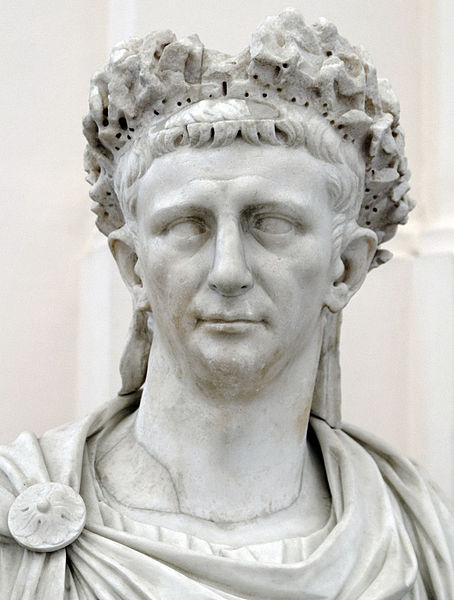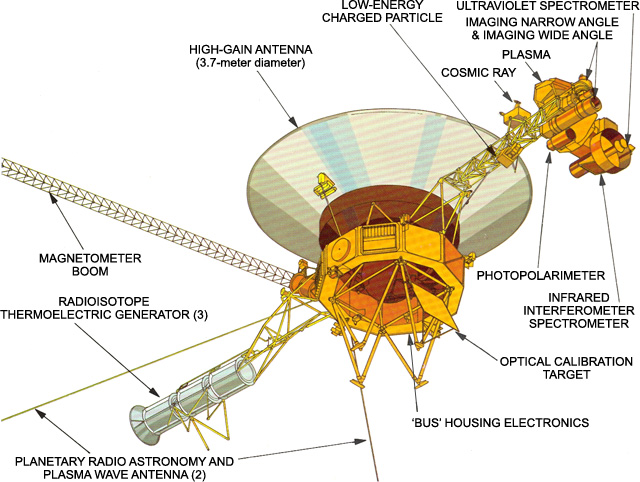This article takes you on a historical journey through a series of significant events that transpired on January 24th across different years and continents.
From the proclamation of Roman Emperor Claudius in 41 AD to pivotal moments in modern history like the establishment of the Department of Homeland Security in 2003 and the World Health Organization’s declaration concerning the novel coronavirus in 2020, each event reflects a moment of change, innovation, or conflict that has shaped the course of human history.
Through exploring battles that influenced the outcomes of wars, groundbreaking technological advancements, profound political shifts, and critical developments in public health, this collection of events offers a diverse glimpse into the dynamic tapestry of our shared past, highlighting the resilience, creativity, and enduring spirit of humanity across ages.
January 24th Events in History
41: Claudius is proclaimed Roman Emperor by the Praetorian Guard after they assassinate the previous emperor, Caligula
After the assassination of Emperor Caligula by members of his own Praetorian Guard, his uncle Claudius was found hiding behind a curtain in the palace.
Also Read: January 23 – On this Day in History
The soldiers proclaimed him emperor, partly because he was a member of the Julian-Claudian dynasty and perhaps also seen as a more pliable option compared to the unpredictable Caligula. Claudius’s reign would prove significant, marked by expansion of the Roman Empire and major construction projects.

1458: Matthias Corvinus becomes king of Hungary
Matthias Corvinus, one of the most prominent kings in Hungarian history, ascended to the throne after the death of his father, John Hunyadi, who had served as Regent of Hungary. Matthias was elected king by the Diet of Hungary at the young age of 14.
His reign is remembered for his efforts to modernize the kingdom’s military and administrative systems, his patronage of arts and learning, and for establishing a well-trained professional army called the Black Army of Hungary.
1848: James W. Marshall finds gold at Sutter’s Mill near Sacramento, starting the California Gold Rush
This event marks the beginning of the California Gold Rush. James W. Marshall, while overseeing the construction of a sawmill for John Sutter in Coloma, California, found shiny metal in the millrace.
Also Read: January 25th Events in History
Tests confirmed it was gold, leading to the publication of the discovery and prompting thousands of prospective gold miners to travel to California in search of wealth. This massive influx of settlers contributed to California’s rapid statehood in 1850.
1857: The University of Calcutta is formally founded as the first full-fledged university in South Asia
Established on January 24, 1857, the University of Calcutta was the first institution in Asia to be established as a multidisciplinary and secular Western-style university.
Its foundation was a major step in the modernization of education in India, providing a model for other universities in the country. The university played a crucial role in the social and intellectual awakening of India in the 19th and early 20th centuries.
1908: The Boy Scouts movement begins in England with the publication of the first installment of Robert Baden-Powell’s Scouting for Boys
The publication of the first installment of “Scouting for Boys” by Robert Baden-Powell in England laid the foundation for the Boy Scouts movement.
Baden-Powell, a British Army officer, formulated the Scouting program based on skills and values that aimed to support young men in developing character, citizenship, and personal fitness.
The movement quickly spread worldwide, becoming one of the largest youth organizations, encouraging young people to participate in a range of outdoor activities, community service, and personal development programs.
1915: The Battle of Dogger Bank: British Grand Fleet engages the German High Seas Fleet
This naval engagement occurred on January 24, 1915, during World War I, between squadrons of the British Grand Fleet and the German High Seas Fleet in the North Sea, near the Dogger Bank. The battle was significant as it demonstrated the effectiveness of British naval intelligence and the superiority of British ship design and gunnery.
Although the battle was inconclusive in terms of strategic impact, it was a morale booster for the British Navy and led to operational and tactical changes in the German Navy. The engagement underscored the importance of naval power in World War I and the ongoing arms race between the two naval powers.
1924: Petrograd, formerly Saint Petersburg, is renamed Leningrad
In the aftermath of Vladimir Lenin’s death on January 21, 1924, the Soviet government decided to rename Petrograd to Leningrad in his honor. Petrograd (formerly Saint Petersburg) had been the capital of the Russian Empire before the Bolshevik Revolution in 1917.
The renaming was part of a broader Soviet campaign to eliminate old tsarist names and commemorate communist leaders and ideals. Leningrad remained the city’s name throughout the Soviet era until the fall of the Soviet Union in 1991, when it was reverted back to Saint Petersburg following a referendum.
1935: Beer is sold in cans for the first time in Richmond, Virginia, USA
On January 24, 1935, the Gottfried Krueger Brewing Company became the first to sell beer in cans, launching in Richmond, Virginia, USA. This innovation was a significant departure from the traditional glass bottles and barrels, making beer more accessible and convenient for consumers.
The cans were lined with a special coating to prevent the beer from reacting with the metal, ensuring the beer’s taste remained unchanged. This move revolutionized the brewing industry, with canned beer quickly becoming popular across the United States and later around the world.

1943: World War II: Franklin D. Roosevelt and Winston Churchill conclude a conference in Casablanca
The Casablanca Conference, a crucial meeting during World War II, concluded on January 24, 1943. Held in Casablanca, Morocco, it was attended by U.S. President Franklin D. Roosevelt and British Prime Minister Winston Churchill, along with other Allied leaders.
The conference’s primary outcome was the agreement on the strategy of “unconditional surrender” for the Axis powers, signaling the Allies’ commitment to fight until the total defeat of Nazi Germany, Italy, and Japan.
The conference also discussed military strategy for the Allied forces in the coming years, including plans for the invasions of Italy and France.
1961: A B-52 bomber carrying two H-bombs breaks up in mid-air over North Carolina. The uranium core of one weapon remains lost
On January 24, 1961, a significant incident occurred when a B-52 Stratofortress bomber, carrying two 3-4 megaton Mark 39 thermonuclear bombs, broke up in mid-air over Goldsboro, North Carolina.
The accident was caused by a fuel leak and resulted in the release of the two bombs. Although neither bomb detonated, the incident exposed the risks associated with airborne alert missions during the Cold War.
One of the bombs came perilously close to detonating, with only a single safety switch preventing a catastrophic explosion. The event led to changes in safety protocols and highlighted the potential dangers of nuclear weapons accidents.
1972: Japanese soldier Shoichi Yokoi is discovered in Guam; he had spent 28 years hiding in the jungle after the end of World War II
Shoichi Yokoi was a Japanese sergeant who was discovered in the jungles of Guam on January 24, 1972, having lived in hiding for 28 years since the end of World War II. Yokoi, who had been drafted in 1941, was unaware that the war had ended and survived by hunting, eating wild plants, and living in a cave.
His discovery astonished the world and brought attention to the phenomenon of Japanese holdouts, soldiers who continued to hide out after the war’s end, either unaware of Japan’s surrender or unwilling to believe it.
Yokoi’s return to Japan was highly publicized, and he became a symbol of enduring perseverance, famously stating, “It is with much embarrassment that I return.”
1984: Apple Computer unveils the Macintosh
The Macintosh, the first commercially successful personal computer to feature a mouse and a graphical user interface (GUI), was introduced by Apple Computer on January 24, 1984. The launch was announced with a now-iconic television commercial during the Super Bowl XVIII, directed by Ridley Scott.
The Macintosh aimed to make computing accessible to a broader audience, with its user-friendly design and innovative features. Its introduction marked a significant milestone in computing history, influencing the development of future personal computers and shaping the industry’s direction.

1986: Voyager 2 passes within 81,500 kilometers (50,680 miles) of Uranus
On January 24, 1986, NASA’s Voyager 2 spacecraft made its closest approach to Uranus, flying within 81,500 kilometers (50,680 miles) of the planet’s cloud tops.
This was the first and, to date, the only spacecraft to visit the distant ice giant. Voyager 2 sent back thousands of images and a wealth of scientific data that revealed two new rings, 11 new moons, and peculiarities of Uranus’s atmosphere, including its tilted axis of rotation.
The flyby significantly expanded our understanding of the outer solar system’s nature and composition.
1993: Turkish journalist and writer Uğur Mumcu is assassinated by a car bomb in Ankara
Uğur Mumcu, an investigative journalist and writer known for his criticism of extremism and his investigative work on political corruption and organized crime, was assassinated by a car bomb outside his home in Ankara, Turkey, on January 24, 1993.
His death shocked the nation and led to widespread protests against violence and terrorism. Mumcu’s assassination remains a symbol of the dangers faced by journalists and the struggle for freedom of expression.
Despite various theories about the perpetrators, the case has not been fully resolved, leaving a lasting impact on Turkish society and its media landscape.
2003: The Department of Homeland Security begins operation in the United States
The United States Department of Homeland Security (DHS) officially began operations on January 24, 2003, in response to the September 11 attacks. It was created to coordinate national efforts against terrorism and manage domestic security.
The DHS consolidated 22 federal departments and agencies, making it one of the largest federal agencies. Its responsibilities include anti-terrorism, border security, immigration and customs, cyber security, and disaster prevention and management.
The establishment of the DHS represented a significant restructuring of U.S. government functions to address the evolving threats of the 21st century.
2009: The storm Klaus makes landfall near Bordeaux, France, causing 26 deaths and extensive damage across France, Spain, Portugal, and Italy
Klaus was a European windstorm that struck northern Spain, southwest France, and parts of Italy and Portugal on January 24, 2009. With winds exceeding 200 km/h (124 mph), it was one of the most destructive storms to hit the region in a decade.
The storm caused widespread damage to forests, buildings, and the electricity infrastructure, leaving millions of homes without power. The economic impact was significant, with damages totaling several billion euros, and the storm led to 26 deaths across the affected countries.
The response to Klaus involved massive cleanup and rebuilding efforts, as well as critiques and improvements to emergency preparedness and response systems.
2011: At least 35 die and 180 are injured in a bombing at Domodedovo Airport, Moscow
On this day, a suicide bomber detonated explosives in the international arrivals hall of Domodedovo Airport, Moscow’s busiest airport. The attack killed at least 35 people and injured over 180, marking one of the deadliest terrorist acts in Russia outside the North Caucasus region in years.
The bombing underscored the ongoing security challenges faced by Russia and led to increased security measures at airports and other public transportation facilities across the country. The attack was later attributed to Islamist militants from the North Caucasus.
2016: A magnitude 6.7 earthquake hits eastern India, killing at least 11 people and injuring more than 200
A magnitude 6.7 earthquake struck the northeastern region of India, near the country’s borders with Myanmar and Bangladesh. The epicenter was in the state of Manipur, but the tremors were felt widely across eastern India and neighboring countries.
The earthquake caused significant damage to buildings and infrastructure, leading to at least 11 deaths and injuring more than 200 people. The event highlighted the vulnerability of the region’s buildings to seismic activity and prompted discussions on improving construction standards and disaster preparedness.
2018: A school shooting at Marshall County High School in Kentucky, USA, leaves two students dead and 18 others injured
A tragic event occurred at Marshall County High School when a 15-year-old student opened fire on his classmates, resulting in two students dead and 18 others injured.
The shooting shocked the community and the nation, leading to calls for action on gun control and school safety measures. It was part of a troubling pattern of school shootings in the United States that spurred nationwide protests and debates about how to prevent such violence in the future.
2020: The World Health Organization declares that the novel coronavirus (2019-nCoV) outbreak is a Public Health Emergency of International Concern
The World Health Organization (WHO) made this declaration in response to the novel coronavirus outbreak, which had originated in Wuhan, China, in late 2019. By January 24, 2020, the virus had spread to several countries, prompting concerns about a global pandemic.
The declaration was a call to countries around the world to coordinate their response efforts, enhance surveillance, and implement measures to contain the virus’s spread.
This marked the beginning of a global health crisis that would profoundly affect all aspects of society, from public health and the economy to daily life and international relations.
